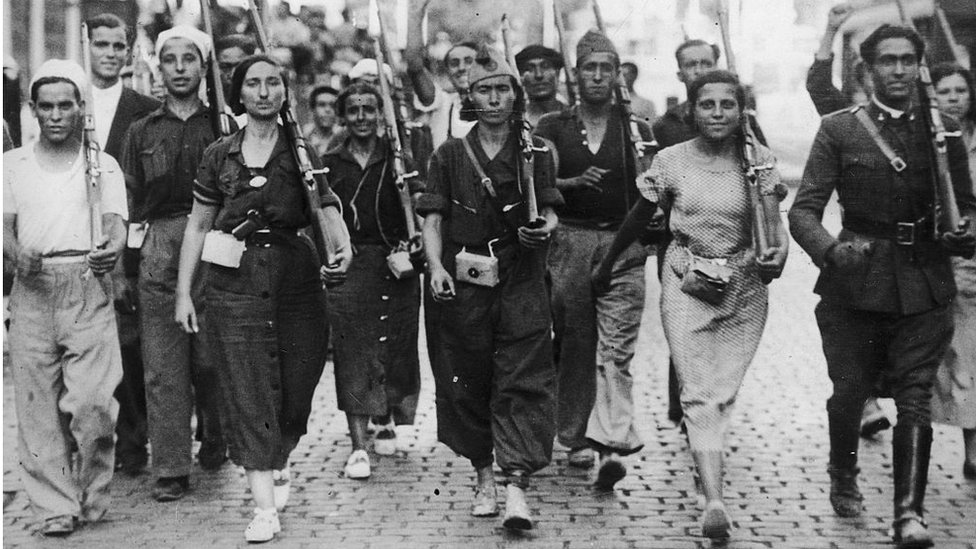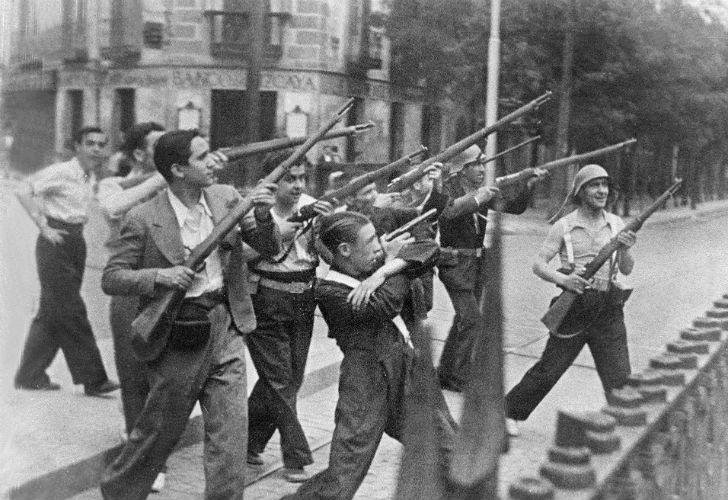The Spanish Civil War, lasting from 1936 to 1939, was a turbulent period that not only devastated Spain but also foreshadowed the global conflict that would follow with World War II. This internal conflict ultimately led to nearly four decades of dictatorship under General Francisco Franco. Here, we examine the origins, development, and culmination of the Spanish Civil War, culminating in Franco's rise to power.
The origins of the Spanish Civil War can be traced back to the profound political and social tensions that emerged in Spain during the early 20th century. The seeds of conflict were sown during the years following the industrial and agrarian revolutions of the 19th century, which had created significant disparities in wealth and opportunity. The establishment of the Second Spanish Republic in 1931 escalated tensions, as its ambitious social and political reforms polarized the Spanish society.
The Republic sought to modernize Spain's infrastructure, education system, and economy, but its secular policies, particularly those aimed at reducing the influence of the Catholic Church, alienated conservative segments of the population. Meanwhile, land and labor reforms alarmed the aristocracy and wealthy landowners. The military, too, was concerned by the republic's reforms and perceived weakness.

The immediate precursor to the war was a military coup attempt launched in July 1936 by Nationalist forces against the Republican government. The coup, led by a group of high-ranking army officers including General Francisco Franco, was only partially successful, leading Spain to be divided into a Republican-held area and a Nationalist-controlled zone.
The conflict quickly escalated into a full-scale civil war, as both sides sought support from international allies. The Republican government received aid from the Soviet Union and International Brigades composed of leftist volunteers from across the globe, while the Nationalist rebels were supported by Nazi Germany and Fascist Italy.
The war consisted of several major phases and key battles, including the Battle of Madrid, where Republican forces managed to hold the city against a Nationalist onslaught, and the Battle of the Ebro, the longest and bloodiest battle of the war. Despite several successes, the Republican side was plagued by internal divisions between anarchists, socialists, and communists, which undermined their efforts to create a cohesive military strategy.
The Nationalists, on the other hand, benefited from better coordination, superior weaponry supplied by their fascist allies, and a unified command under Franco. By the end of 1938, the Nationalist forces had captured Catalonia, cutting off the Republic from the French border and securing victory in the war.
The war formally ended on April 1, 1939, when the last of the Republican forces surrendered. The aftermath was brutal for those associated with the Republic, with tens of thousands executed or imprisoned in a sweeping wave of repression.
General Francisco Franco emerged as the unchallenged ruler of Spain, establishing a dictatorship that would last until his death in 1975. Under Franco's regime, Spain remained largely isolated from the rest of Europe and underwent a period of censorship, economic hardship, and political repression. The Francoist period also saw the imposition of conservative social norms, the reinstatement of Catholicism as the state religion, and a slow but eventual economic recovery and modernization from the 1950s onward.

The Spanish Civil War was more than a national conflict; it served as a prelude to World War II, embodying the ideological battles between fascism, communism, and democracy that would soon engulf the world. Its legacy is complex, marked by decades of dictatorship under Franco, the loss of hundreds of thousands of lives, and the deep divisions it created in Spanish society—wounds that, for some, have yet to fully heal. The war's end and the ensuing dictatorship under Franco dramatically shaped the course of Spanish history, leaving an indelible mark on the nation's identity and its path to democracy.